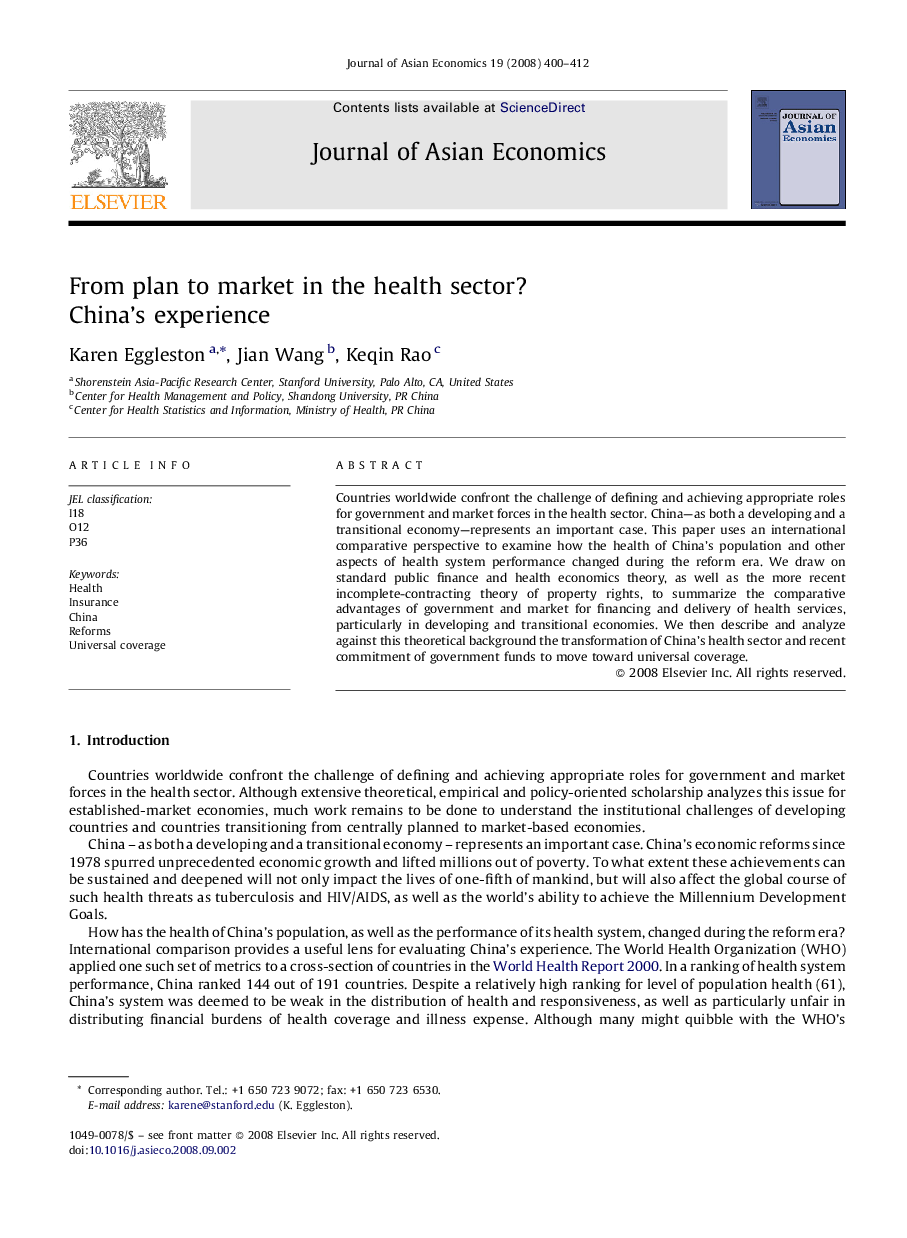| Article ID | Journal | Published Year | Pages | File Type |
|---|---|---|---|---|
| 5087792 | Journal of Asian Economics | 2008 | 13 Pages |
Countries worldwide confront the challenge of defining and achieving appropriate roles for government and market forces in the health sector. China-as both a developing and a transitional economy-represents an important case. This paper uses an international comparative perspective to examine how the health of China's population and other aspects of health system performance changed during the reform era. We draw on standard public finance and health economics theory, as well as the more recent incomplete-contracting theory of property rights, to summarize the comparative advantages of government and market for financing and delivery of health services, particularly in developing and transitional economies. We then describe and analyze against this theoretical background the transformation of China's health sector and recent commitment of government funds to move toward universal coverage.
